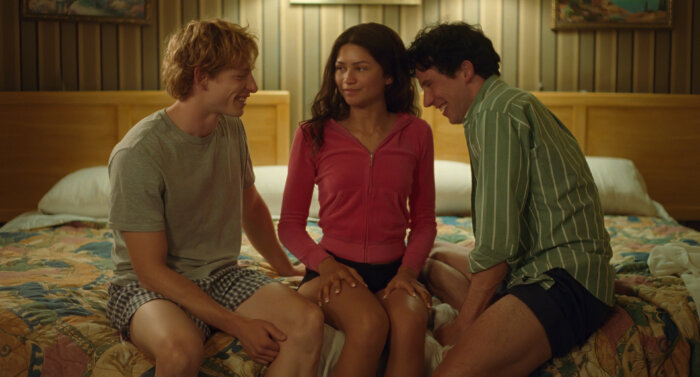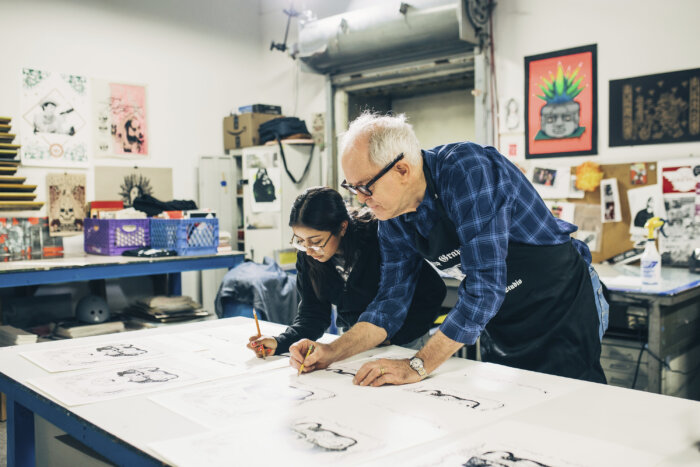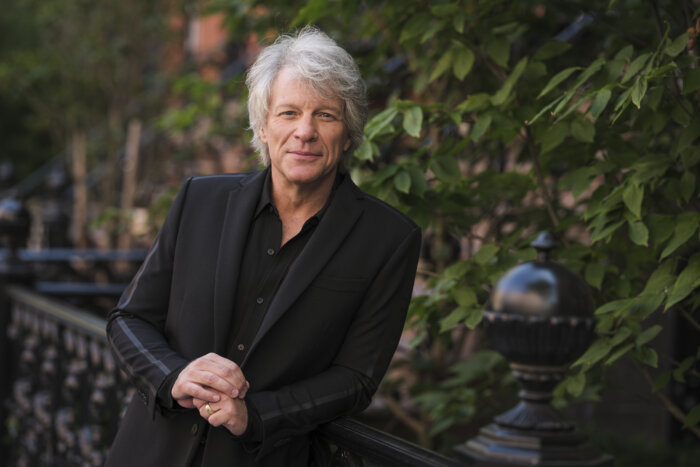Life can’t really be summed up into one category. It’s funny, it’s sad, it’s heartbreaking, it’s exhilarating and it’s complicated. To add to that, more often times than not, life is more than one of those things simultaneously, and Carl Hunter’s feature debut ‘Sometimes, Always, Never’ is exemplary of that notion.
The film follows Alan, played by ‘Love Actually’ star Bill Nighy who is quite the colorful character. He worked for a living as a Merseyside tailor but has an innate desire to learn, which he exemplifies through game-playing quite ruthlessly, particularly with scrabble. Years before we meet him, Alan lost his son after he walked out during one of those heated scrabble sessions and disappears, and although he has another living son (played by Sam Riley), that hole never quite seems to be filled for Alan.
What transpires throughout the film is a stylish comedic tale that hits on some tougher points in life, just as it should according to Nighy. The actor sat down with Metro to discuss more on what went into making ‘Sometimes, Always, Never,’ why he loves his character and what he hopes audiences are able to take away from the film.
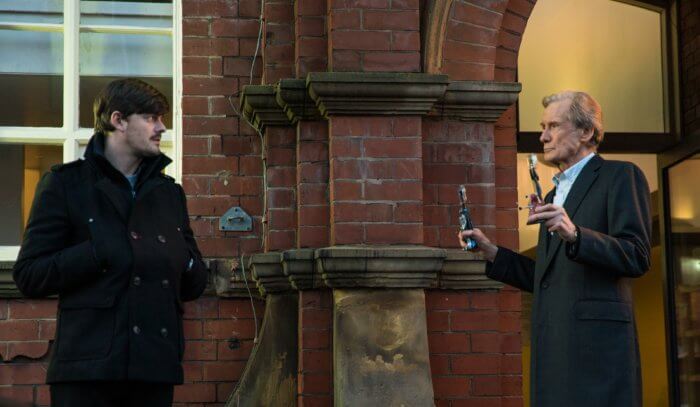
What was the initial draw for you to want to sign on with this film?
I just thought it was very unusual. Frank Cottrell Boyce, who wrote it, has got a huge reputation and I’ve admired him for years. It was also a first time director, and he had some very cool ideas aesthetically, and I’m quite interested in the high style that he was proposing for this film. I was interested that his influences were people like Roy Andersson, the Scandinavian filmmaker, and Aki Kaurismäki, who’s another Scandinavian filmmaker, both of who make comic stylized movies. I’ve never made a film like that, I was quite interested. I was also interested that [my character] was from Liverpool. I quite like playing around with voices so I got to play around with a Liverpool accent. I also liked that he was an ancient modernist, which is what we here call ‘Mod.’ I got to wear some progressive modernist knit wear that I wouldn’t ever have the courage to wear in real life.
Carl Hunter’s style definitely caught my eye for the film as well, each scene had it’s own aesthetic—how was it working with him?
I really, really, really enjoyed working with him. He’s a very thoroughly decent man, very funny and very bright and sophisticated—and very knowledgeable about films and the general aesthetic. His background is art school and this is a man who watches documentaries about fonts—different printing fonts. He’s an obsessive weirdo, but he’s a very nice guy. I loved his notions about the style, I loved his juxtaposition between naturalism and very heightened stylistic framing and context. I just thought it was witty. The experience of working with him was nothing but deeply pleasant.
Tell me more about your character Alan. What do you like about him and how would you describe him?
One of the things that both Carl and I are both keen on—because broadly speaking we come from a similar kind of background, we wanted to present a man with a working-class background who was sophisticated and educated. One of the great myths in the world is that somehow we are divided as a species into categories of intelligence due to our social background of upbringing—that myth still persists and it’s an unkind and cruel myth, which prevents people from having the lives that they might have. I’m very moved by the phenomenon of a self-educated working man, someone who has the curiosity and intelligence to learn stuff and to become acquainted with books, music or art—we both were keen to present a character of that kind. Also, the fact that he’s been dealing with grief, the kind that I can only imagine. [He’s] somebody who’s had to find systems of behavior and ways of living in order to cope with a terrible loss, the loss of his son. I do know about becoming institutionalized in certain patterns of behavior. I know how that happens, because it happens to me and I can be institutionalized instantaneously anywhere you put me, I’m just one of those people and I know what it’s like to cling to certain patterns whether consciously or unconsciously—I’m interested in that. There’s also this irony about him and about the writing that’s funny, and in the end I do sort of insist that, at least occasionally within any project I do, that it be funny.
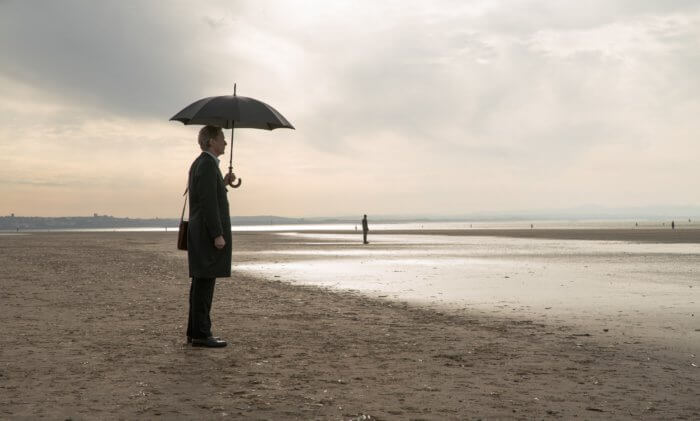
The film tackles intense subjects but is still comedic and makes you laugh. What do you think the combination of seriousness and comedic aspects brings to the audience experience overall?
I think they get to experience a more accurate account of life because life contains those things not even separately, sometimes it includes those things at the same time. Simultaneously things are terribly sad and funny. In terms of what you might call entertainment, or if you dare, art, then the combination is a powerful one and it works on several levels. Sometimes, as an audience you don’t want two hours of poignancy or of sadness, you need it to be punctuated by some kind of humor, which is what we do anyway. It’s what people do in real life. That’s how we cope with a lot of things, we try and find something that triggers laughter because otherwise it’s too much for us. Two films I like for example, ‘Punch, Drunk, Love’ and ‘ Lost in Translation’—you’re not going to have anyone walking away from those films saying we went to see this comedy. They wouldn’t say that, and yet the experience of watching either of those films is that the audience laughs every one and a half minutes as arranged by the makers of the movie. It’s a comedy disguised in the service of something serious because information and emotion travels very successfully in the form of jokes.
The film definitely explores family dynamics in-depth, from beginning to end. What journey did you see your character go on in that respect?
In recent times, the big thing everyone is reminded of is family—even however messed up your family might be in the end, family—whether it’s functioning or not is really, really important. I just think what I would want overall is that the audience go away thinking that this whole humanity thing sometimes might just work and the people who are compassionate enough to get through dreadful times and to stay in one piece as a family and as individuals, we might just survive great loss and we can have a tender regard for one another despite differences. Those are all the big things, and right now we’re really being reminded of them.
“Sometimes, Always, Never” will have it’s virtual theatrical release June 12 and will drop on VOD July 10.

























